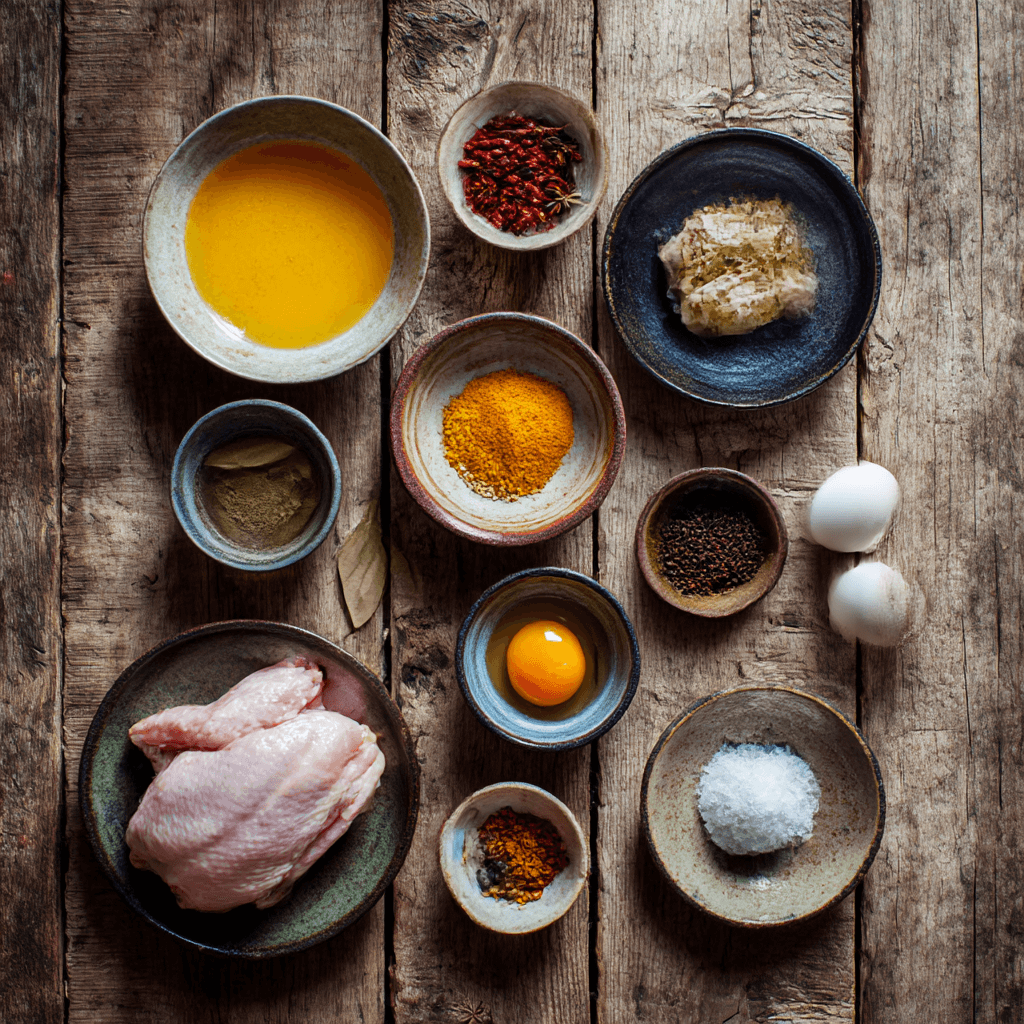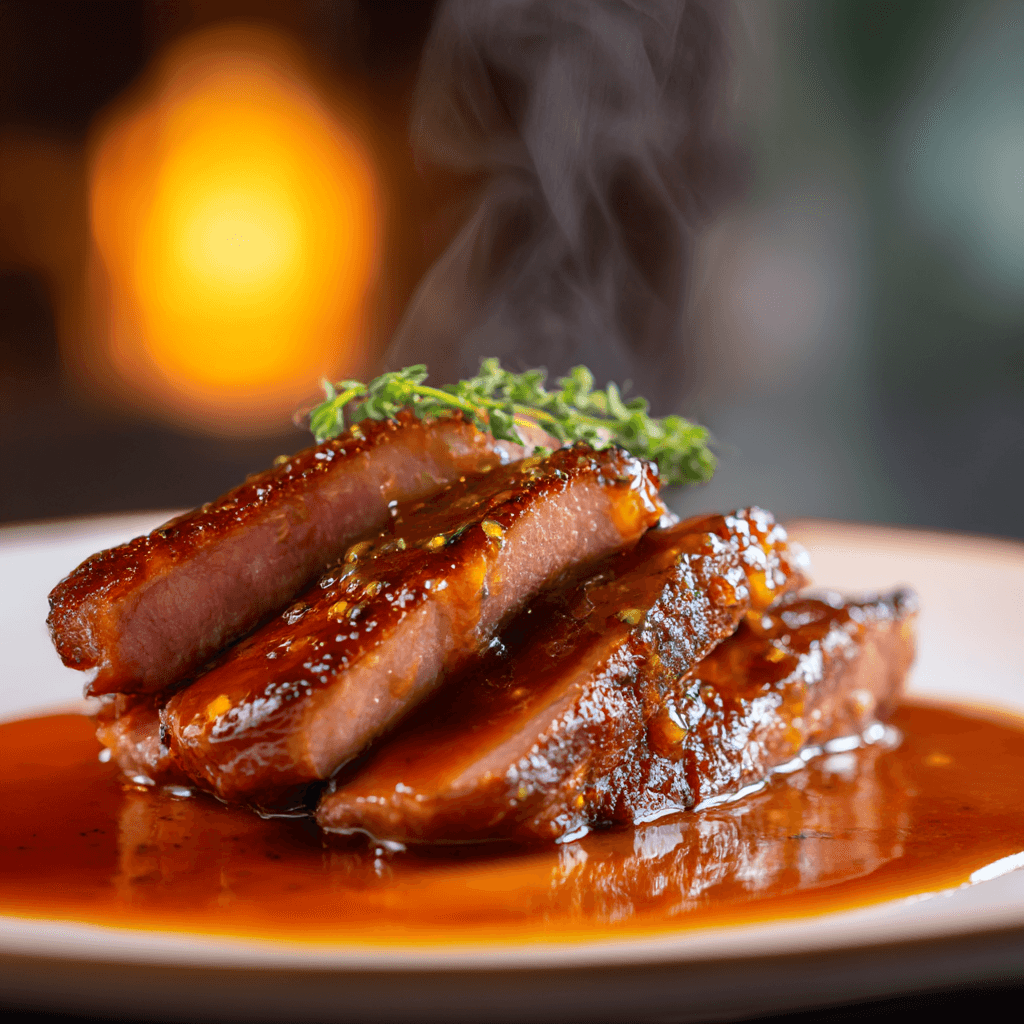Table of Contents
Gordon Ramsay Duck Orange Sauce transforms an ordinary meal into something extraordinary, but most home cooks struggle with achieving that perfect balance of sweet, tangy, and rich flavors that makes restaurant versions so memorable. After years of cooking in high-pressure environments as a firefighter, I’ve learned that precision and technique matter just as much in the kitchen as they do in emergency situations. This sauce requires the same attention to detail – one wrong move and you’ll end up with bitter, broken, or overly sweet results. The USDA emphasizes proper food handling when working with duck and citrus preparations. If you’re looking to elevate your poultry game further, check out this pan-seared halibut technique that uses similar precision methods.
Why This Gordon Ramsay Duck Orange Sauce Recipe Works (And Where Most Go Wrong)
The magic of Gordon Ramsay Duck Orange Sauce lies in three fundamental principles that separate professional results from amateur attempts. First, proper caramelization of the sugar creates depth and complexity rather than simple sweetness. Most home cooks rush this step, resulting in a sauce that tastes like orange-flavored syrup instead of the sophisticated reduction restaurants serve.
Second, the timing of citrus addition determines whether you get bright, fresh orange notes or bitter, harsh flavors. Adding orange juice too early causes the natural acids to break down and turn acrid. The science behind caramelization shows that controlled heat application creates hundreds of flavor compounds that simply can’t be rushed.
Third, temperature control prevents the sauce from breaking. Duck fat and citrus don’t naturally want to stay together, so maintaining the right heat while slowly whisking creates a stable emulsion. I’ve seen too many firefighters try to rush this process during station cooking – it never works. Patience and steady hands win every time with Gordon Ramsay Duck Orange Sauce.
Ingredients That Actually Matter for Gordon Ramsay Duck Orange Sauce

Quality ingredients make the difference between good and exceptional Gordon Ramsay Duck Orange Sauce. Fresh orange juice is non-negotiable – bottled juice lacks the bright acidity and natural oils found in freshly squeezed oranges. Look for oranges that feel heavy for their size with tight, unblemished skin. Valencia or blood oranges work particularly well due to their balanced sweet-tart profile.
Duck or chicken stock provides the foundation, but homemade stock elevates this sauce dramatically. Store-bought alternatives should be low-sodium and free from artificial flavors. The stock’s gelatin content helps create that glossy, restaurant-quality finish that clings beautifully to meat.
Brandy or Grand Marnier adds complexity, but don’t skip the alcohol cook-off step. Raw alcohol creates harsh notes that overpower the delicate orange flavors. Butter finishing is crucial – use high-quality European butter for the richest mouthfeel. If you’re interested in mastering other sauce fundamentals, this Mornay sauce guide covers similar emulsification techniques that apply here.
Step-by-Step Instructions for Gordon Ramsay Duck Orange Sauce
Initial Caramelization Phase
Heat a heavy-bottomed saucepan over medium heat and add 2 tablespoons of granulated sugar. Never leave caramelizing sugar unattended – it can go from perfect to burnt in seconds. Swirl the pan gently as the sugar melts and turns golden amber, about 3-4 minutes. The color should resemble dark honey, not light caramel.
Building the Base
Immediately add 1/4 cup of brandy or Grand Marnier to deglaze. Stand back when adding alcohol to hot caramel as it will bubble violently. Stir constantly for 30 seconds to cook off the raw alcohol. Pour in 1 cup of duck or chicken stock slowly, whisking continuously. The mixture will bubble and steam aggressively initially.
Citrus Integration
Add the zest of 2 oranges and 1/2 cup fresh orange juice. Add citrus only after the alcohol has cooked off to prevent curdling. Bring to a gentle simmer and reduce heat to low. Simmer for 8-10 minutes until the sauce coats the back of a spoon. For more advanced sauce techniques, check out this green peppercorn sauce method that uses similar reduction principles.
Final Enrichment
Remove from heat and whisk in 2 tablespoons of cold butter, one piece at a time. This creates the glossy, restaurant-quality finish that defines proper Gordon Ramsay Duck Orange Sauce. Season with salt and white pepper to taste. Never boil the sauce after adding butter or it will break and separate. The Food Network’s guide to pan sauces explains why temperature control matters so much in the final stages.
Pro-Tips That Change the Game
- Strain the finished sauce through a fine-mesh sieve for silky, professional texture that removes any bits of zest or impurities
- Make the sauce base ahead and finish with butter just before serving – this prevents last-minute stress during dinner parties
- Add a pinch of cayenne pepper to balance sweetness and enhance the orange flavors without obvious heat
- Keep the sauce warm in a double boiler rather than direct heat to prevent breaking if you need to hold it
- Reserve some fresh orange zest to garnish the plate – the aromatic oils provide an extra burst of citrus when the dish arrives
- Taste and adjust acidity with a splash of white wine vinegar if the sauce becomes too sweet during reduction
Storage & Leftovers for Gordon Ramsay Duck Orange Sauce
Store Gordon Ramsay Duck Orange Sauce in the refrigerator for up to 3 days in an airtight container. The sauce will thicken considerably when cold due to the natural gelatin in the stock. To reheat, warm gently in a small saucepan over low heat, whisking frequently to restore the smooth consistency.
Avoid microwaving as the uneven heating will cause the emulsion to break. If the sauce appears separated after reheating, whisk in a tablespoon of cold butter to re-establish the emulsion. The FDA’s food handling guidelines recommend never leaving dairy-enriched sauces at room temperature for more than 2 hours to prevent bacterial growth.

Gordon Ramsay Duck Orange Sauce
Ingredients
Equipment
Method
- 1️⃣ Heat heavy-bottomed saucepan over medium heat and add 2 tablespoons granulated sugar. Swirl pan gently as sugar melts and turns golden amber, about 3-4 minutes. Never leave caramelizing sugar unattended – it can go from perfect to burnt in seconds.
- 2️⃣ Stand back and immediately add 1/4 cup brandy or Grand Marnier to deglaze. Stir constantly for 30 seconds to cook off raw alcohol. The mixture will bubble violently initially.
- 3️⃣ Pour in 1 cup duck or chicken stock slowly, whisking continuously. The mixture will bubble and steam aggressively initially. Continue whisking until smooth.
- 4️⃣ Add zest of 2 oranges and 1/2 cup fresh orange juice. Only add citrus after alcohol has cooked off to prevent curdling. Bring to gentle simmer and reduce heat to low.
- 5️⃣ Simmer for 8-10 minutes until sauce coats the back of a spoon. The sauce should reduce by about half and have a glossy appearance.
- 6️⃣ Remove from heat and whisk in 2 tablespoons cold butter, one piece at a time. This creates the glossy, restaurant-quality finish. Never boil after adding butter or it will break.
- 7️⃣ Season with salt, white pepper, and a pinch of cayenne. Strain through fine-mesh sieve for silky texture. Serve immediately while warm.
Nutrition
Notes
Tried this recipe?
Let us know how it was!Frequently Asked Questions About Gordon Ramsay Duck Orange Sauce
What goes well with duck in orange sauce?
Classic pairings include roasted root vegetables, wild rice pilaf, and sautéed greens like spinach or Swiss chard. The rich, citrusy Gordon Ramsay Duck Orange Sauce also complements roasted Brussels sprouts, fondant potatoes, or a simple arugula salad. The key is balancing the sauce’s richness with lighter, slightly bitter vegetables that won’t compete with the orange flavors.
How to make orange sauce for duck?
Start by caramelizing sugar until amber, then deglaze with brandy and add stock. Reduce by half before adding fresh orange juice and zest. The secret to perfect Gordon Ramsay Duck Orange Sauce lies in controlling each temperature change and finishing with cold butter for glossy richness. Never rush the caramelization or add citrus too early.
What is the most popular Gordon Ramsay dish?
While Beef Wellington might be his signature dish, Gordon Ramsay Duck Orange Sauce appears frequently across his restaurants and shows. His approach emphasizes classic French techniques with modern precision. You can explore more of his signature dishes to understand his cooking philosophy better.
Is orange sauce the same thing as duck sauce?
No, they’re completely different. Duck sauce is a sweet and sour condiment served at Chinese restaurants, usually made with apricots, plums, or peaches. Gordon Ramsay Duck Orange Sauce is a French-inspired reduction featuring caramelized sugar, fresh orange juice, and stock. The only similarity is the name – the flavors, preparation methods, and uses are entirely different.
This Gordon Ramsay Duck Orange Sauce transforms any meal into a restaurant-worthy experience when you follow proper technique and timing. Remember, cooking is about patience and precision – qualities that served me well in firefighting and serve you well in the kitchen.
Stay safe,
Jack Sullivan


